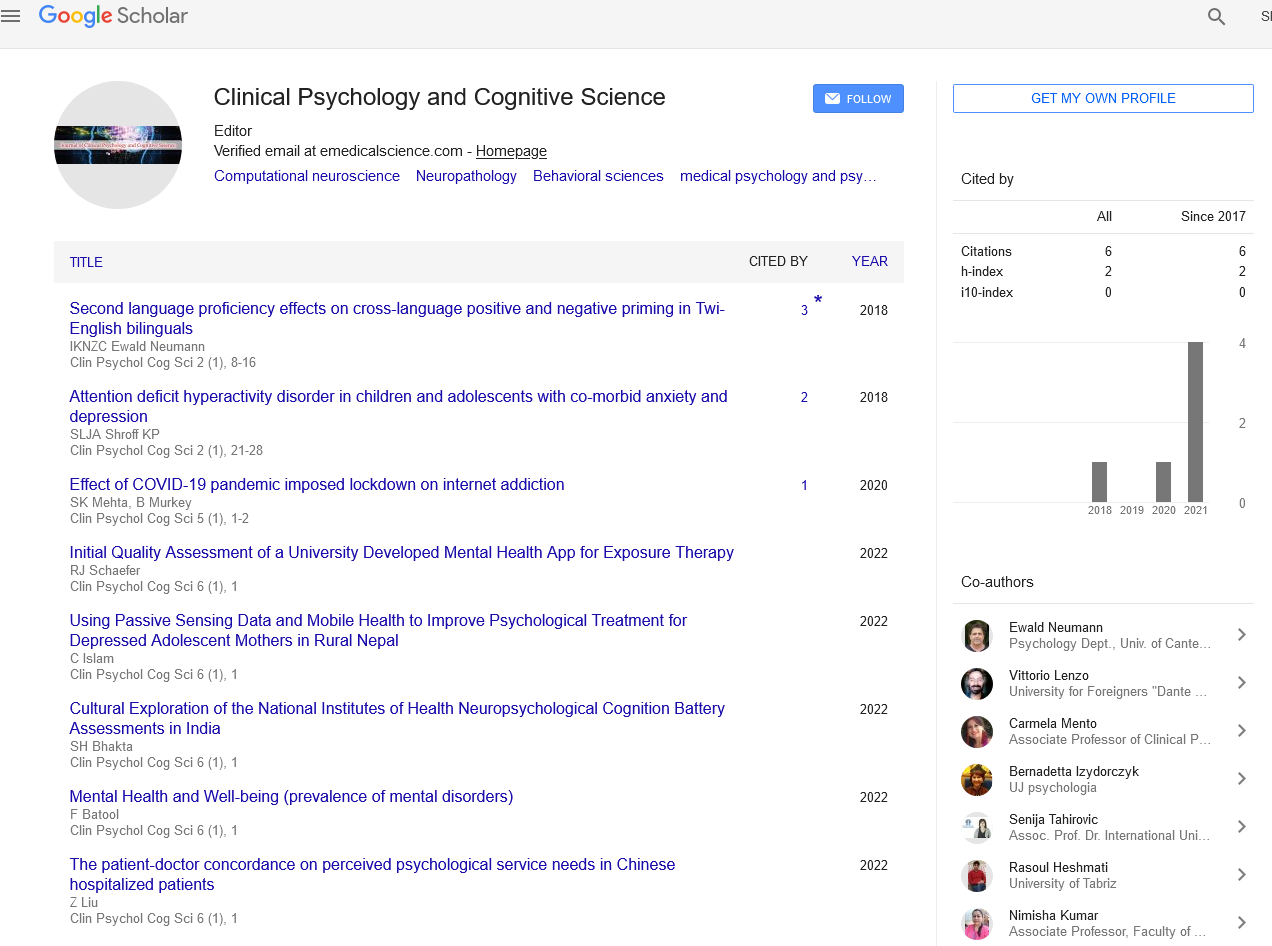
Sign up for email alert when new content gets added: Sign up
Abstract
Effect of harmful treatments in psychotherapy
Author(s): Dunn Timothy*When someone receives psychotherapy, they have hope of recovery. But if they don’t, what’s the worst case scenario? Will this therapy prove to be ineffective? In fact, treatment can be harmful. Research shows that, on average, about 10% of clients actually get worse after starting treatment. However, belief in the safety of psychotherapy still exists and is widespread. In 2006, Charles Boisvert of the Rhode Island Cognitive Behavioral Therapy Center and David Faust of Brown University School of Medicine conducted a survey of 181 practicing psychologists across the United States. They found that a large percentage (28%) did not know the negative effects of psychotherapy. "One of the subtle things we investigated," Boisvert said, "is whether psychologists’ perceived familiarity with psychotherapy research is consistent with their actual familiarity. This is not the case-some clinicians think they are aware of the research, but in the actual test, they did not perform well.”
Full-Text | PDF




